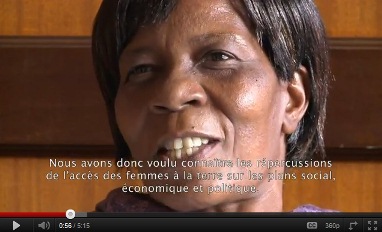About IDRC
A Crown corporation, we support leading thinkers who advance knowledge and solve practical development problems. We provide the resources, advice, and training they need to implement and share their solutions with those who need them most. In short, IDRC increases opportunities—and makes a real difference in people’s lives.
Working with our development partners, we multiply the impact of our investment and bring innovations to more people in more countries around the world. We offer fellowships and awards to nurture a new generation of development leaders.
What we do
IDRC funds research in developing countries to create lasting change on a large scale.
To make knowledge a tool for addressing pressing challenges, we
- provide developing-country researchers financial resources, advice, and training to help them find solutions to local problems.
- encourage knowledge sharing with policymakers, researchers, and communities around the world.
- foster new talent by offering fellowships and awards.
- strive to get new knowledge into the hands of those who can use it.
In doing so, we contribute to Canada’s foreign policy, complementing the work of Global Affairs Canada, and other government departments and agencies.
Resources
Displaying 321 - 324 of 324Global Environment Facility - 7th Replenishment
General
De Global Environment Facility (GEF) werd in 1991 opgericht als een pilootprogramma bij de Wereldbank. In 1994 werd GEF een onafhankelijk financieel mechanisme voor het verlenen van giften en zachte leningen om de meerkosten te dekken van maatregelen die de bescherming van het wereldleefmilieu beogen en duurzame ontwikkeling promoten. Dit gebeurt via vijf “Focal Areas”: klimaatverandering, biodiversiteit, chemicaliën en afval, internationale wateren en bodemaftakeling. The Biodiversity Focal Area is built around achieving the Four-year Program’s three objectives: 1) Mainstream Biodiversity Across Sectors as well as Landscapes and Seascapes; 2) Address Direct Drivers to Protect Habitats and Species; and 3) Further Develop Biodiversity Policy and Institutional Frameworks. The GEF-7 Climate Change Focal Area Strategy is focused on the following objectives: 1) Promote Innovation and Technology Transfer for Sustainable Energy Breakthroughs; 2) Demonstrate Mitigation Options with Systemic Impacts; and 3) Foster Enabling Conditions for Mainstreaming Mitigation Concerns into Sustainable Development Strategies. The GEF-7 Land Degradation Focal Area seeks to achieve the following objectives: 1) Enhance on-the-ground Implementation of SLM using the LDN tool; and 2) Create an Enabling Environment to Support Voluntary LDN Target Implementation. The Chemicals and Waste Focal Area focuses on eliminating chemicals covered by the Minamata and Stockholm conventions and the Montreal Protocol that are used in or emitted from industrial and agricultural sectors. International Waters Focal Area. While not responding directly to a convention, the GEF International Waters Focal Area fills a critical gap in the global management of transboundary water resources, both marine and freshwater. GEF IW interventions are built on initial assessment of threats and opportunities through Transboundary Diagnostic Analyses (TDAs), which are followed up by the development of regional Strategic Action Programs (SAPs). Aligned with SAPs, the objectives of the International Waters Focal Area are: 1) Strengthening Blue Economy Opportunities (which includes sustaining healthy coastal and marine ecosystems; catalyzing sustainable fisheries management; and addressing pollution reduction of both nutrients and marine plastics); 2) Improving Management in Areas Beyond National Jurisdiction (ABNJ); and 3) Enhancing Water Security in Freshwater Ecosystems. These objectives will be supported by investments in large marine ecosystems, transboundary rivers, lakes, aquifers, and ABNJ.
Second Additional Financing to the Malawi Agricultural Sector Wide Approach - Support Project
General
The development objective of the Agriculture Development Programme Support Project (ADP-SP) is to improve the effectiveness of investments aimed at food security and sustainable agricultural growth. The global environmental objective is to strengthen the natural resource base in agricultural lands through doubling the area under sustainable land management as a basis for securing ecosystem services and sustainable agricultural productivity. The project will (i) strengthen institutional capabilities necessary to further develop, and implement, a harmonized and aligned investment framework leading towards a full-fledged SWAp in the agricultural sector; (ii) increase the land, water and nutrient use efficiency of maize based rainfed cropping systems targeted by the Governmentâ s Agricultural Development Programme; and (iii) increase the resilience of the maize supply system to cope with climate induced risks and shocks.
Ethiopia Resilient Landscapes and Livelihoods Project
General
To improve climate resilience, land productivity and carbon storage, and increase access to diversified livelihood activities in sel ected rural watersheds.
In focus - Women and Land - IDRC Conversations with activists, leaders, and researchers on women's land rights
[From Youtube.com] In September 2010, in Nairobi, Kenya, IDRC hosted the policy symposium, Gendered Terrain: Women's Rights and Access to Land in Africa. At this symposium, researchers from across Africa shared their findings and engaged with policymakers. These 11 short videos present valuable insight from some of the symposium's participants.




